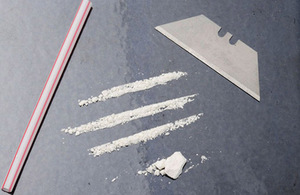New evidence of harm caused by ketamine misuse
Ketamine should be upgraded to a Class B drug following increased evidence of bladder damage from frequent misuse, experts have recommended.

The Advisory Council on the Misuse of Drugs (ACMD) has seen misuse increase. In 2010/11 it was estimated that almost 200,000 individuals in England and Wales had misused ketamine and requests for treatment of ketamine related problems have increased from 114 cases in 2005/6 to 845 in 2010/11. It is most commonly misused by men aged 20 to 24 and nearly half of all users mix ketamine with other drugs.
Bladder damage
Research has shown up to a third of long-term users suffer intense abdominal pain, often called “K cramps”. Frequent, high dose ketamine misuse can cause severe bladder, urinary tract and kidney damage and in the most severe cases the bladder is so badly damaged it has to be removed.
Ketamine is safely used in a number of areas of human and veterinary medicine, but its misuse by recreational users has severe psychological and physical effects, including feelings of disassociation where the user’s perception is detached from reality, known as the “K-hole”. Other effects include hallucinations, nausea, agitation and an increased heart rate.
Since January 2006, ketamine has been controlled as a Class C drug under the Misuse of Drugs Act 1971. The ACMD was asked by the Home Secretary to review the misuse and harms of the drug in March 2012 in order to inform the government’s public health response, as well as its classification.
In its report, ‘Ketamine: a review of use and harm’, the ACMD has made a number of recommendations including the need to increase young peoples awareness of the long term physical risks of frequent use. There is currently no evidence based ketamine education or prevention work being delivered in schools in the UK.
Professor Les Iversen, Chairman of the Advisory Council on the Misuse of Drugs, said:
The harm ketamine posed to users prompted the ACMD to recommend its control in 2004.
Since then, we have seen evidence of a worrying trend of serious bladder damage occurring among frequent users. In some cases this has led to young people having their bladder removed.
It is a potentially dangerous drug at high doses and with frequent use with serious psychological and physical implications for those who misuse it. That is why we have recommended it is re-classified to Class B and that there is an improved public health message around the risks associated with ketamine.
The report, which examined evidence from the Survey for England and Wales and drug specialists, makes 13 recommendations around public health, treatment, forensic identification, research and control and scheduling.
It has been submitted to the Home Office and Department of Health for consideration.